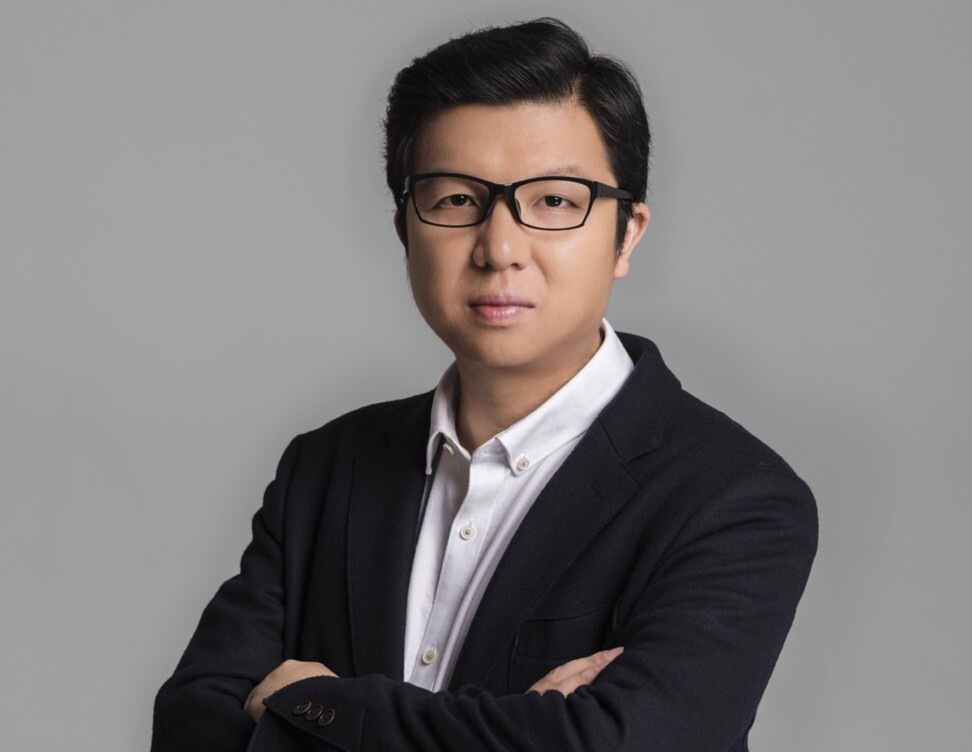
Kuaishou’s Su Hua to step down as CEO, following moves by ByteDance and Pinduoduo founders amid China’s tech crackdown
- The 39-year-old Kuaishou Technology co-founder said he wants to focus on developing long-term strategy for the owner of China’s second-largest short video app
- Cheng Yixiao, who created the app in 2011, will take over as CEO, and Su will remain as chairman with voting rights unchanged

Kuaishou Technology co-founder Su Hua is stepping down as CEO, becoming the third member of a new generation of Chinese technology billionaires to relinquish control in day-to-day operations of their companies amid the government’s protracted industry crackdown.
The 39-year-old entrepreneur said he is stepping aside to focus on developing the company’s long-term strategy. Taking over as CEO is long-time collaborator Cheng Yixiao, who created Kuaishou a decade ago as a tool to create and share animated pictures.
Together, the two transformed the company into China’s second-largest short video platform in China, after ByteDance’s Douyin, the Chinese version of TikTok. Beijing-based Kuaishou went public in Hong Kong earlier this year.

Cheng, 37, will report to Su, who continues to serve as the chairman of the company, according to a company statement on Friday. The weighted voting rights for both Su and Cheng remain unchanged.
After the reshuffle, Su will concentrate on strategy planning and new initiatives, according to the statement, and Cheng will be responsible for company operations.
Su’s decision to step down follows similar announcements this year from Colin Huang, founder of e-commerce company Pinduoduo, and ByteDance founder Zhang Yiming.
Huang announced in March that, at the age of 41, that he was stepping down as chairman of his Shanghai-based e-commerce firm. He had a net worth of US$46.8 billion at the time, according to Forbes.
Zhang made his announcement in May, saying he would step down as CEO sometime this year to “be more impactful on longer-term initiatives”.
Cheng created Kuaishou in 2011, but he was always more product-focused rather than a management type, according to Fisher Zhang Fei, an early investor in the company, in the book The Power to be Seen: What is Kuaishou, an official company history compiled by Kuaishou and published in 2019. This is why Su, a former Google engineer who graduated from Beijing’s Tsinghua University, joined the company in 2013 and took over as CEO.
The two initially met at a restaurant and, over numerous rounds of beer, found that they shared a vision for creating something for China’s ordinary internet users, according to media reports. Cheng went on to start Kuaishou as a GIF-sharing app. After Su joined, Cheng became chief product officer.
Kuaishou’s pivot to short video brought enormous success and wealth to its founders. Su is now worth an estimated US$6.4 billion, according to Forbes, while Cheng is worth US$5.1 billion.
Kuaishou, which also operates the apps Kwai and Snack Video in overseas markets, announced in June that it had amassed 1 billion monthly active users globally.
However, the management reshuffle comes amid a steep market decline for Chinese tech companies, as regulators have turned up the pressure on the country’s internet giants this year through a range of new requirements and restrictions.
In February, Kuaishou made a bigger-than-expected splash when it debuted on the Hong Kong stock exchange, with shares reaching a high of HK$345 (US$54), more than double its offer price. Increased volatility in recent months has since dragged down Kuaishou’s share price, which hit a low of HK$64.5 in August.
The company’s shares have since rebounded slightly, but fell 0.3 per cent on Friday to close at HK$103.5.